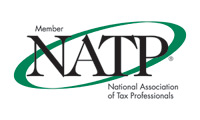 How do lenders determine who is approved for a credit card, mortgage, or car loan? Why are some individuals flooded with credit card offers while others get turned down routinely? Because creditors keep their evaluation standards secret, it is difficult to know just how to improve your credit rating. It is important, however, to understand the factors and to review your credit report periodically for any irregularities, omissions, or errors. Reviewing your credit report annually can help you protect your credit rating from fraud and ensure its accuracy.
How do lenders determine who is approved for a credit card, mortgage, or car loan? Why are some individuals flooded with credit card offers while others get turned down routinely? Because creditors keep their evaluation standards secret, it is difficult to know just how to improve your credit rating. It is important, however, to understand the factors and to review your credit report periodically for any irregularities, omissions, or errors. Reviewing your credit report annually can help you protect your credit rating from fraud and ensure its accuracy.
Credit Evaluation Factors
Many factors determine your credit. Here are some of the major factors considered:
- Age
- Residence
- “Authorized user” payment history
- Checking and savings accounts
- Bankruptcy
- Charge-offs (Forgiven debt)
- Child support
- Closed accounts and inactive accounts
- Jobs
- Payment history
- Recent loans
- Collection accounts and charge-offs
- Cosigning an account
- Credit limits
- Credit reports
- Debt/income ratios
- Department store accounts
- Payment history/late payments
- Finance company credit cards
- Income/income per dependent
- Mortgages
- Revolving credit
- Name/alias
- Number of credit accounts
- Fraud
- Inquiries
These factors may be used, and weighted, in determining credit decisions. Credit reports contain much of this information.
Click to continue reading “Credit Reports: What You Should Know”














